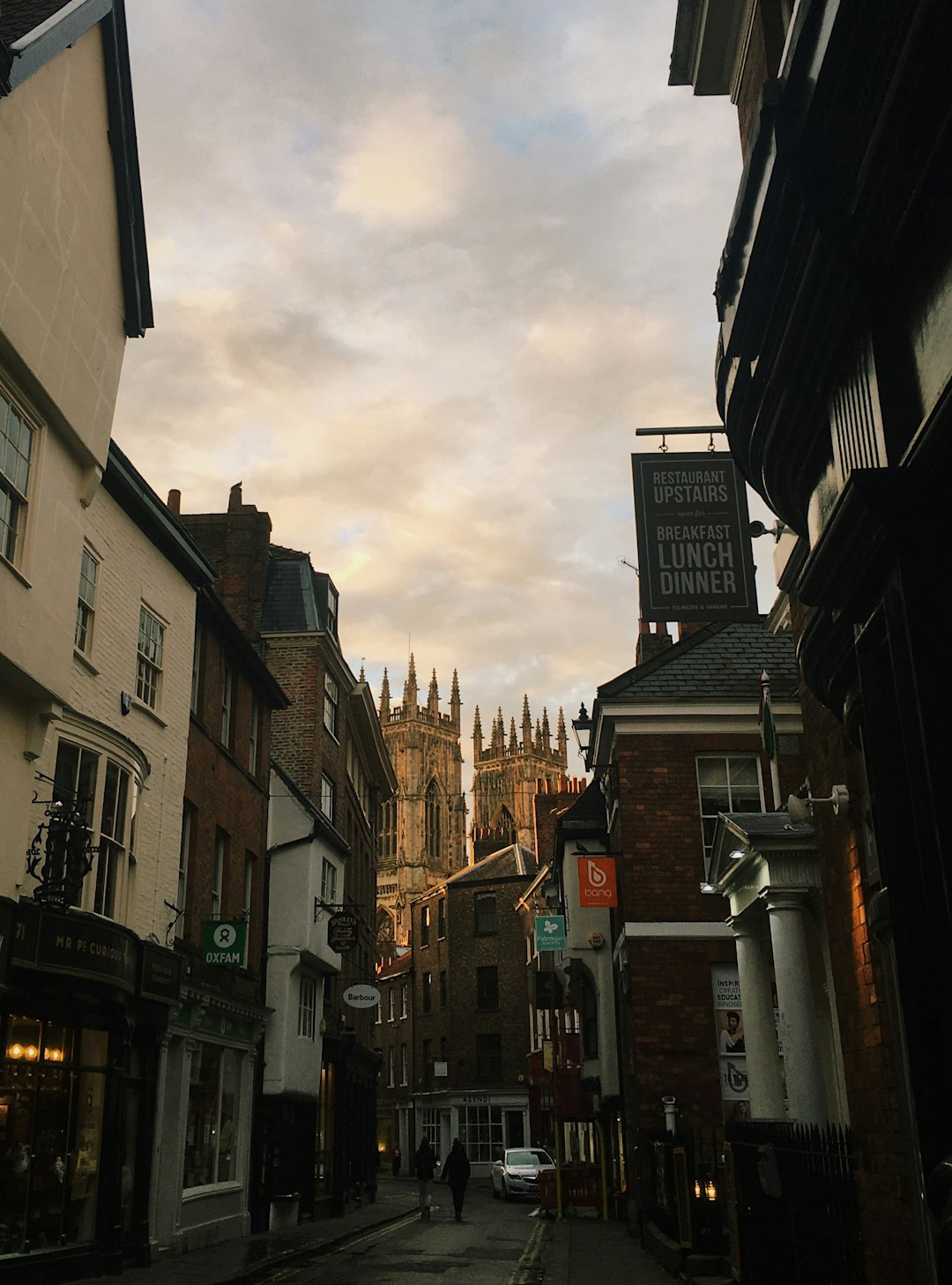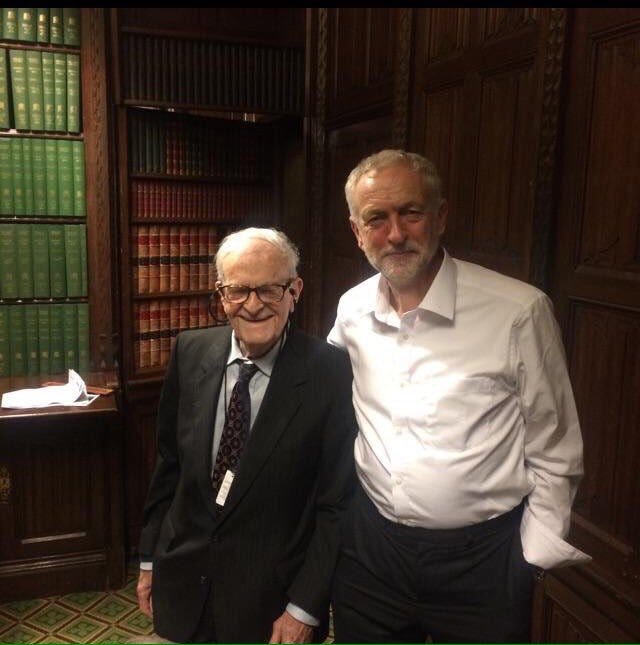"The working class neighbourhoods of my youth were designed to stifle hope & erase beauty from the lives of the inhabitants. Socialism changed that."
Harry Leslie Smith in this segment of his Green and Pleasant Land writes about being twelve years old and how his political awareness has grown. He has an epiphany during an arduous bike ride to York. It is a wonderful portrait of a young boy coming into adolescence and coming to terms with his working class legacy.
Harry Leslie Smith’s The Green & Pleasant Land tells a true story about the lives of working class people who lived during a time of political and economic extremities. From their sufferings these unemployed miners, mill workers, along with the rest of ordinary Britain made a better world for themselves and others by constructing a Welfare State, where all could share in a nation’s prosperity.
The Green & Pleasant Land is proof ordinary humanity can seize destiny and make a present that is fair to all. The Harry’s Last Stand project which I worked on with my Dad for the last 10 years of his life was an attempt to use his life story as a template to effect change. His unpublished history- The Green & Pleasant Land is a part of that project. I have been working on it, refining it and editing it to meet my dad’s wishes. It should be ready for a publisher in May.
Your support in keeping my dad’s legacy going and me alive is greatly appreciated. I depend on your subscriptions to keep the lights on and me housed. So if you can please subscribe and if you can’t it is all good because we are fellow travellers in penury. But always remember to share these posts far and wide.
Chapter Twenty-One.
Since my birth, the housing I lived in was cramped and damp. The neighbourhoods of my youth stifled hope because there were too many hungry people, too many overworked people, too many undereducated people and ultimately too many angry people living in them. Their dreams and desires were eaten away first by low wages and then by no wages because the Great Depression made them unemployed.
The working class were a people denied the right to enjoy beauty. We were forbidden leisure time lest we forget our lowly place in capitalism’s hierarchy. My people-the working classes- were promised by Britain’s elites that if we did not rebel against the class system, when our death came the riches of heaven awaited us. If we were meek and obedient on earth, paradise was ours forever more, in death.
Of course, it was a lie. But it kept Britain's working class in check for centuries- outside of a few rebellions, General Strikes and some outright disobedience to the State. By my twelfth birthday, I had no faith in god and certainly none in Britain or their propaganda about "fair play for all." I knew the system regarded me as a pack mule to be used until dead from over work.
Despite my lack of formal schooling, I was coming into my own intellectually thanks in large part to a public library membership. I was changing physically and entering puberty. I was becoming a man because at 12 years old, I knew I was expected to become a fulltime worker at 14.
In 1935, I was able to save some money from my job and conceal it from the watchful eyes of my mother. With it, on my only day off Sundays I’d bike to a quiet spot, outside of town. Underneath a tree, with a sandwich, a flask of tea, and an apple; I read or let my mind wander. I daydreamed about my future and wondered what would happen to me when I grew older. My imaginings slipped into fantasy and I dreamed I was with the most beautiful woman and living a thrilling life. I dreamed of travel and faraway lands.
I dreamed so much of great voyages and grand discoveries that I set upon visiting the medieval city of York. I was determined to make a pilgrimage to the Minster. I was not wandering to the great church as a religious supplicant; I wanted to go as a servant to beauty in a disfigured world.
The week before my trip, I studied maps in the library. I plotted my course and the exact time I should leave. I purchased puncture kits for my worn tyres, which I knew would face much abuse on the journey. I bought a new satchel to hold a raincoat, my thermos, and sandwiches.
When I left King Cross and began my excursion to York, I felt like Charles Lindbergh departing New Jersey to fly solo across the Atlantic. I told no one of my plans for fear they would thwart my desires with impediments and arguments.
My route was planned to avoid Bradford and Leeds. I skirted up a secondary dual-carriageway that had less traffic on them. Before long, I realized that my chosen path was through some of the hilliest and bent roads towards the ancient city. My tyres punctured every half hour. I quickly used up my supply of puncture kits.
When rain fell, I took cover underneath an elderly, roadside tree and sipped tea from my thermos and took deep bites from a cheese bun. I began to doubt myself and cursed my arrogance at attempting this stupid venture. Turning back was not possible as I was past the halfway mark to York and it was now closing in on noon.
The storm passed and the skies returned to a greyish blue. I folded up my raincoat and stored it back in my bag. I mounted my rickety bike and pushed upwards to the city.
By two o’clock, I approached the great walled city. The spires of the Minster towered before me. They were a fulcrum in the landscape, the tallest structure in a hundred miles, since the 12th century. I pedalled my bike to York’s main gate: Bootham Bar. It was also the ancient entrance to the Roman fortress, built by the Roman 8th legion.
I walked underneath its stone ceiling. I saw the slits cut into the masonry, where archers defended the city in the 1300s. I pushed my bike up through the shambles, where hawkers battled to grab my attention to their stalls filled with all types of meat, cheese, fruit, and sweets.
They shouted, imploring me to see their fresh produce, the best apples, and the most magnificent pies or jam. The Shambles took me on a long winding, incoherent ascent to the cathedral. Suddenly, out of the shadows of the vendors, the roadway parted and uncovered a wide expanse.
Finally, the second largest medieval cathedral in northern Europe was exposed to me. It stood like a colossus, powerful and silent as the sphinx. The sun draped down and swept around its peak and fell across the stained glass windows. To my left was part of the old Roman road constructed by legionnaires of Caesar Claudius. A thousand years ago, that road would have stretched to London in the south and to Hadrian’s Wall in the north. Above me, the bells pealed, announcing the passing of the quarter hour. I entered the church and pulled open the gargantuan, oak doors.
I had no love of religion. I had no love of the cold-hearted, cruel, impiety of the nuns and the priests encountered at school. I had no affection for my church or my religion. I had no respect for the celibate hypocrites who doled out physical punishments for my alleged imperfections as a Christian. I had no reverence for the superstitious who seemed more interested in their petty prejudices than God or Jesus.
I had no devotion to a Church that employed sadism to subvert its flock into meek obedience. Yet while I walked through the majestic silence of the Minster that stretched back to the Dark Ages in the 600s; the magnetisms of faith, this cathedral held over life in Yorkshire for close to 1500 years overwhelmed me emotionally.
I felt reverence for the workers, the stone masons, the carvers, the glazers who had toiled in creating such a wondrous place. I felt awe at the simple and great lives that had passed through this cathedral, held together by a belief in a higher authority I no longer accepted.
I came to York to see the ancient history of my people- their majestic architecture and feel a connection with the great tapestry of life in Northern England.
Looking upwards against the vaulted ceiling and across to the silent saints of the church, an epiphany came over me. I knew I had worth. I knew that despite my poverty, my hunger, my lack of education, my family's dislocation, my dad's abandonment by us, as well as all the indignities my mother endured to keep her children fed: my life had a purpose ahead of it. I knew from that day on, I had the right as a human being, to find happiness and not be a servant to the wealthy.
I understood, that day at York, that I was destined to carry all those memories, all that pain with me, for as long as I lived. But I was granted the right to ascend and try to escape my backward existence because I was different and unique.
I spent another hour exploring York and found an inn where I had a half pint of bitter. After, I jumped on my bike for the long journey home. I did not reach home until the lamp lighters had begun their shift and started to light the gas street lamps of my neighbourhood.
When I returned home, I was exhausted, elated, and unable to explain to anyone why I had ridden my bike to York. My mother thought I was daft and Alberta laughed at my folly. But I went to bed and fell into a fitful sleep that night. I dreamed of my eventual escape from King Cross, Halifax, and Yorkshire.




Wonderful stories because of their truth. They expose the true nature of capitalists. Should be read by every school child.
I have enjoyed all of this book. Excellent